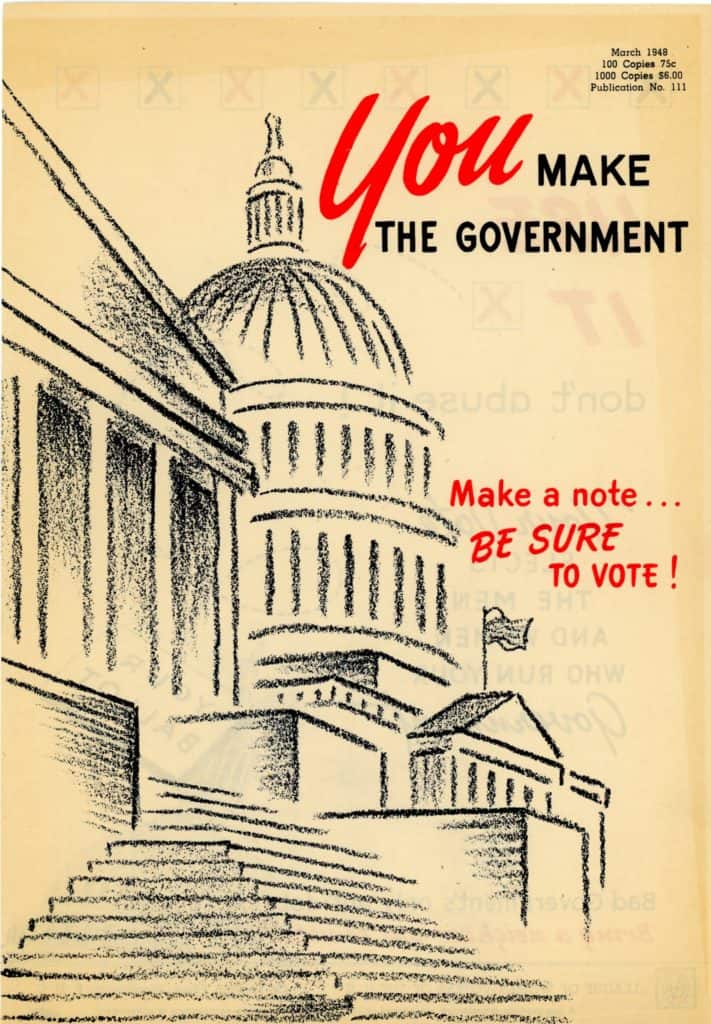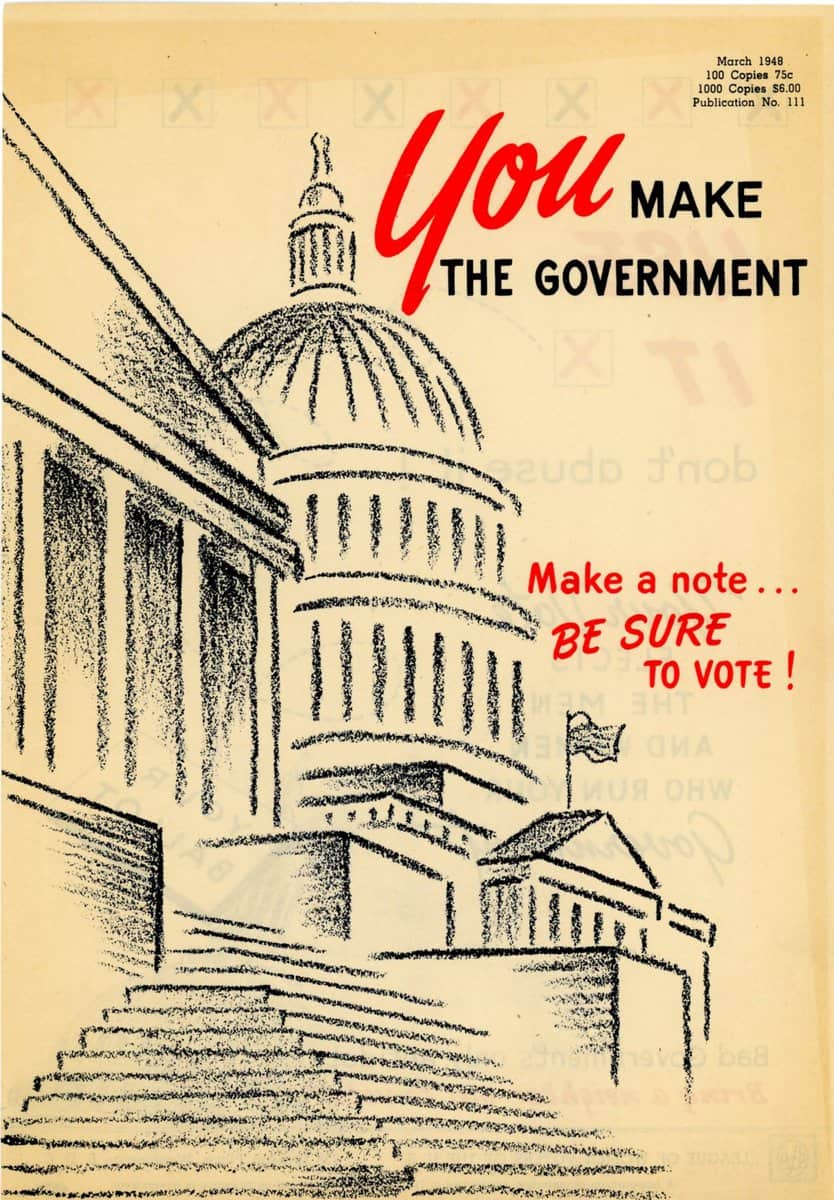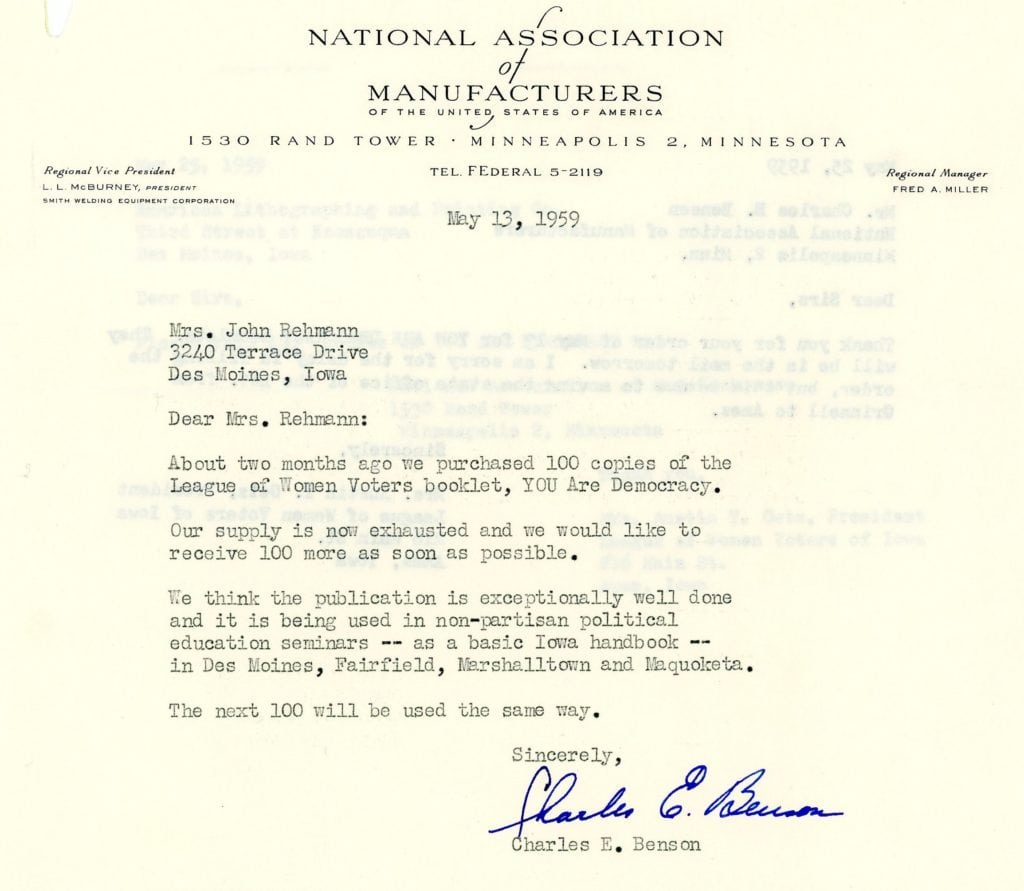This post was written by Iowa Women’s Archives Graduate Assistant Beatrice Kearns.
In 1920, riding the excitement of the victorious passage of the 19th amendment, newly minted voters in Iowa (and across the nation) organized as the League of Women Voters (LWV) with a goal of creating a well-informed body of voters. A non-partisan organization, the LWV focuses on voters understanding their power and responsibility in government at all levels. It also emphasizes that for democracy to be for the people, citizens must engage with government at every level. In a 1947 project entitled You are Democracy, the LWV aimed to educate voters on the democratic process.
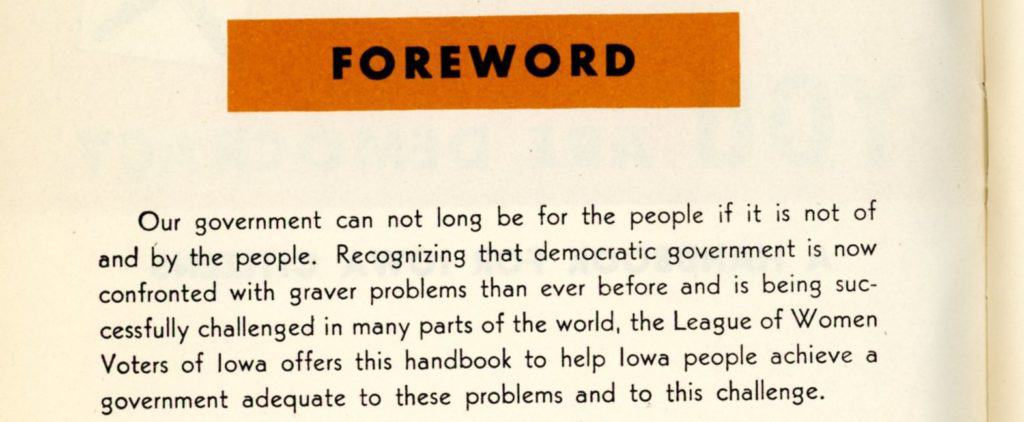
The booklet followed John Q. Iowa Citizen, who is representative of the average man, through his questions and concerns about politics, voting, government, and legislation. In 1947, America was changing fast. Tensions between the United States and the Union of Soviet Socialist Republics (USSR) were rising, the post-World War II economy was booming, the atomic bomb was fresh in everyone’s mind, and the average citizen had a lot to consider when casting their vote. As all Iowans know, election season is long and in 1947 the build up to the 1948 races was already underway. The LWV intended You are Democracy to help voters navigate this fast-moving and complex election process. Despite being written by the organization, the booklet was not designed for women exclusively, but rather follows a man, emphasizing the desire to connect to all voters across the state. While the LWV had a goal of engaging women with their hard-fought right to vote, they do so by speaking of Mr. John Q. Iowa citizen and his wife, Mrs. John Q. The frustrations and concerns of voters are voiced through Mr. and Mrs. John Q. Iowa Citizen, “My wife says the time and trouble we take to make up our minds whom to vote for sometimes reminds her of putting good frosting on a poor cake. Other times she calls it trying to make bread without yeast”. While an outdated, sexist view on women as voters, You are Democracy offers a look into the time period and shows how the LWV worked to engage with all voters.
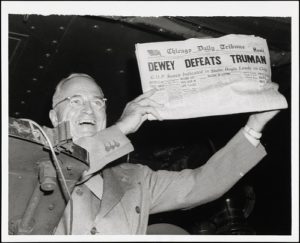
The information in the booklet underlines how voters decide elections, not pollsters or news media, which was perfectly demonstrated during this election cycle. In the lead up to the 1948 presidential election between incumbent Harry Truman and Republican challenger Thomas Dewey, many pollsters and news outlets essentially declared Dewey the winner. The Chicago Tribune even printed and ran papers on election night before votes had been tallied with the headline “Dewey Defeats Truman!” when in reality Truman won the election by a sizable margin. Truman even posed for pictures holding newspapers with headlines stating he had lost after his victory.
The booklet also explains what rights a voter was entitled to in the state of Iowa, such as time off work for voting, assistance at the ballot box, and absentee voting. The detailed but simple explanation of the voting process makes it much more approachable for hesitant potential voters or new voters.
Are Democracy doesn’t just cover voting and the electoral process, but also explains the different levels of government and their functions. As Mr. Q Iowa Citizen puts it, “you have to know the job before you pick the man.” There is a plethora of information about local governments and their duties and responsibilities. It can be complicated to grasp the jurisdictions and roles of county, city, and state governments and this booklet provides a great deal of clarifications.
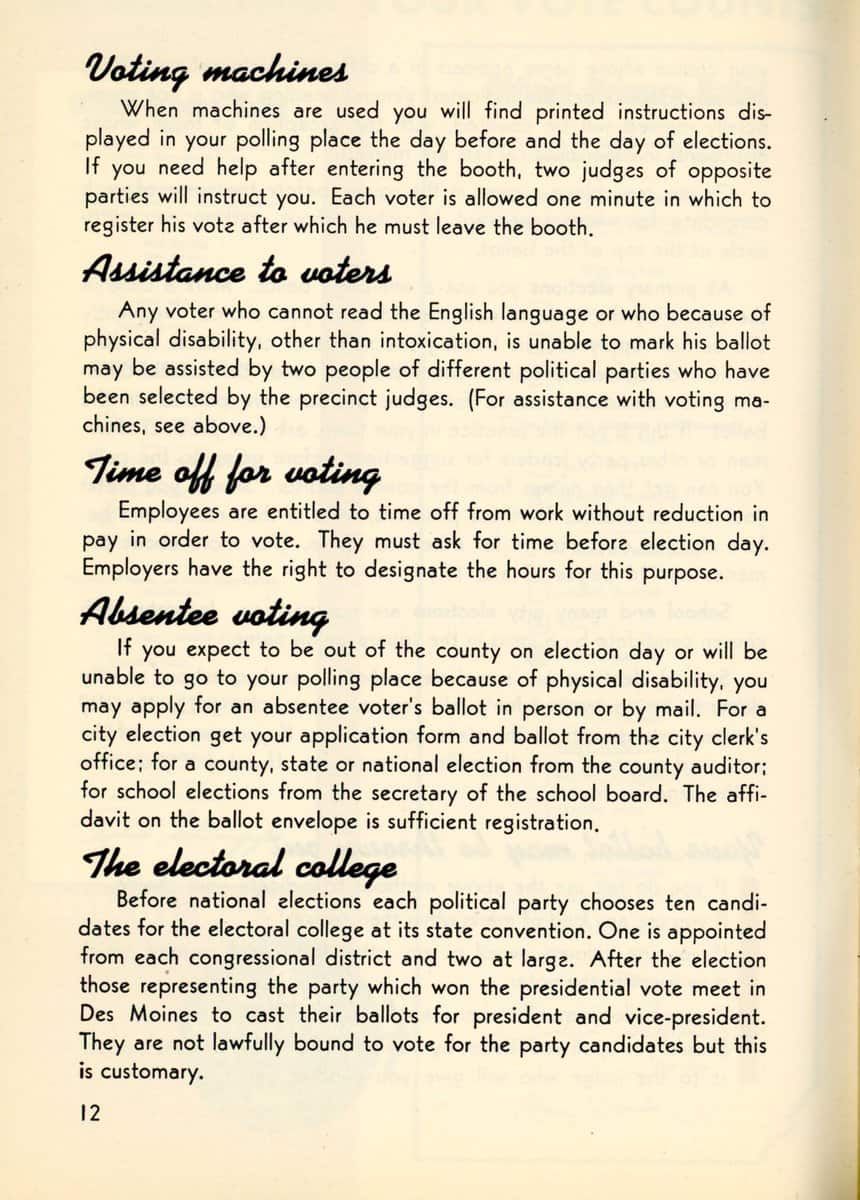
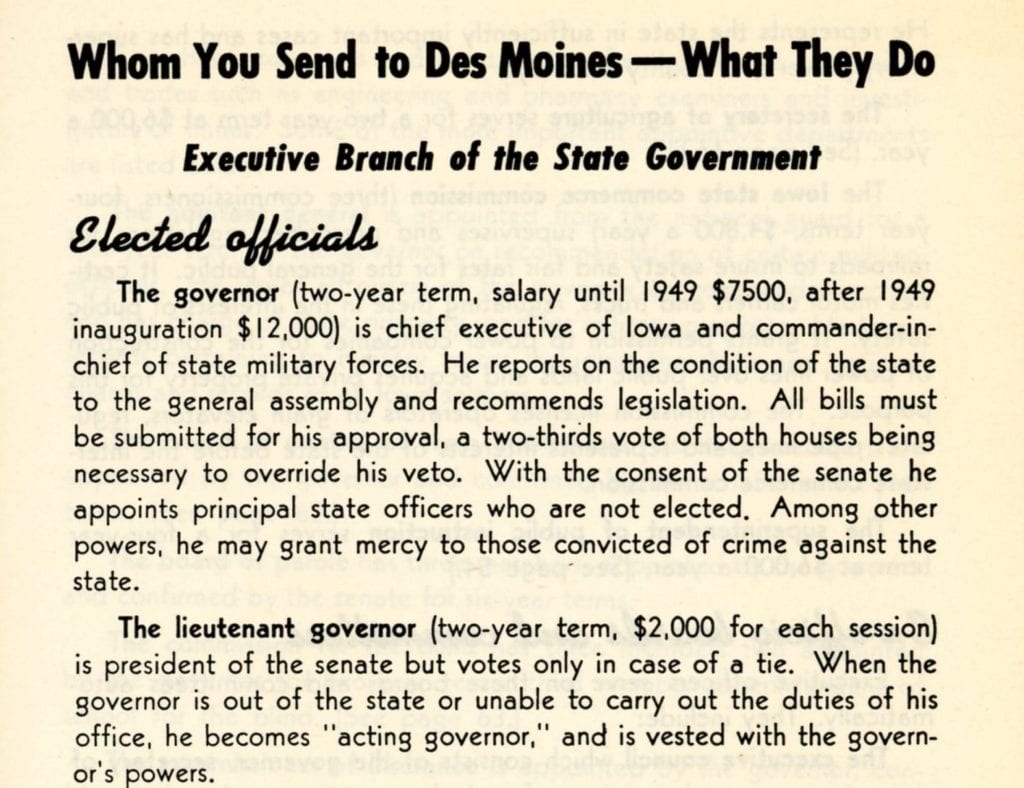
The LWV distributed over 100,000 copies of the booklet by 1964 and it became the model for Leagues in other states. A wide range of organizations and people found You Are Democracy important and useful, from colleges to labor organizations. Many of these organizations wrote to the LWV thanking them for such a wonderful resource. This booklet reached many voters and helped them understand the complexities of electoral politics. This was not a book to leave forgotten on a shelf, but rather a tool to carry around. Only slightly larger than a cell phone, bound simply with two staples, Mr. John Q. Iowa Citizen could come along everywhere.
The LVW of Iowa created a tool of voter engagement that helped thousands of Iowa voters understand their rights and responsibilities as constituents. Their dedication to a body of engaged citizens helps us all remember that as Americans we make the government.
